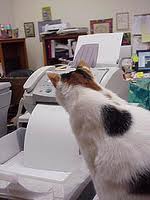As a pet owner for 14 years, it felt as though I was taking the best possible care of my beautiful cocker spaniel. Looking back on it, I unfortunately had a tendency to let my busy schedule get in the way of providing my dog with the treatment he deserved. I made the common mistake of procrastinating when it came to all aspects of grooming. I wouldn’t take him to go get his haircut until his hair was by far too long. It would get to the point where it grew so much even around his eyes, causiing it to hinder his vision. When it came to bath time, I assumed a bath once a month was sufficient. My Cocker loved to explore and get messy whenever he played around in our backyard so he definitely could have benefitted from multiple baths a month rather than just one. Another issue I now realize is that I would fill up his food bowl whenever it was empty, instead of providing him with a good eating schedule. Lastly, it was hard for me to remember specifics when it came to my dog’s veterinarian visits. After reflecting back on all of the improvements I could have made with my cocker spaniel, I know that with my next pet, using VitusVet will be one of the first steps I make in order to keep my dog happy and healthy!
INTRODUCTION:
Marketing for veterinary ER practices is a lot different than marketing for general practitioners or even specialty veterinarians. As a veterinarian with an MBA who has worked in both general and emergency practice, I know that the ways that clients "find you" are very different. In this post I'm talking specifically about emergency clinics/hospitals: the "rules" for specialty clinic marketing are different. Most specialty referrals occur during the day and are not emergent, so a general practitioner has a much bigger impact on where a client goes for care than they do for emergency care.
As emergency medicine has become it's own specialty and the availability of 24/7 care has exploded, especially in metropolitan areas with high disposable income, it's no longer enough to say "We provide fantastic care for reasonable prices." or "We're open 24/7". Or even "We have board certified specialists on staff." Why? Because virtually everybody can say that about themselves.
As my friend and colleague Linda Curtis of Animal Emergency & Critical Care in Leesburg, VA says, "It's time to get away from thinking that clients should be grateful that we are open and available to them...the privilege is ours to have them come in."
So what CAN emergency clinics do to differentiate themselves in the eyes of their referring veterinarians? I've written about that here (/blog/3-ways-for-er/specialty-veterinarians-to-increase-referrals) but for today, Let's debunk a few persistent myths!
AVMA Economic Summit 2014: Thoughts for veterinarians
Posted by Mark Olcott, DVM on Nov 25, 2014 11:17:46 AM
I recently attended the 2nd annual 2014 AVMA Economic Summit that was held in Chicago. This is an annual gathering of veterinarians, thought leaders, and academics who are interested in the economic condition of our profession. It was hosted by the AVMA Veterinary Economic Strategy Committee, on which I am proud to serve.
3 Ways For ER/Specialty Veterinarians To Increase Referrals
Posted by Mark Olcott, DVM on Oct 13, 2014 11:38:36 AM
In my 20-year career as a veterinarian, I've worked in general practice, specialty/referral practice, and emergency practice. This experience has given me the ability to look at veterinary practice through multiple different lenses. One of the things that I've noticed is that there is still a big communication gap between ER/Specialty practices and general practices. What's the most common complaint that GPs have about ER/Specialty practices? You guessed it....communication. While both sides can do more to improve communication, I believe the burden lies more with ER/Specialty practices. In the relationship between general practitioners and specialists (and I'll include emergency hospitals as specialists for the purposes of this post), the general practitioner is the customer. They are the ones who make or break your practice, and in the increasingly competitive market for referral cases, losing one or two of your referring veterinary practices can have a huge negative impact on your practice.
So here are three ways specialists can improve communication with their referring veterinarian partners: 3 things NOT to do!
Topics: Grow Your Veterinary Practice
Topics: Grow Your Veterinary Practice, For Practice Managers








